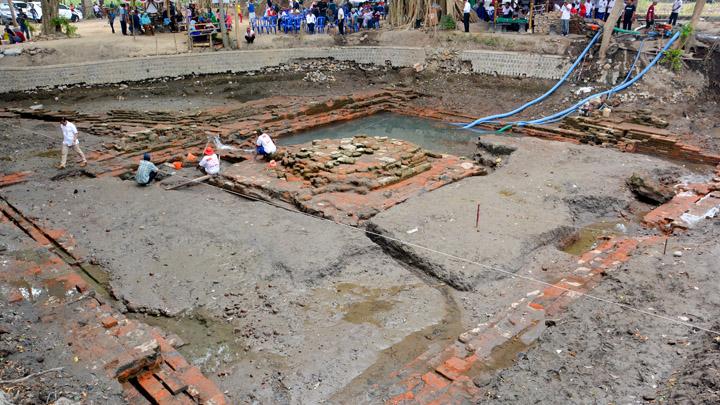
TEMPO.CO, Jakarta - In November, the Sangihe Islands in North Sulawesi declared itself Indonesia`s first organic regency. The Sangihe program has been in the works for a long time, with special attention paid to developing organic farming as well as providing training for farmers' groups in the regency. Sangihe locals have collaborated with a number of stakeholders, among others the Kehati Foundation, Burung Indonesia (Birds of Indonesia), the Ford Foundation and the Indonesian Institute of Sciences. The regency's local government has also initiated the 'two days without rice' program to reduce local reliance on rice brought in from other regions. A local organic non-rice agriculture is now thriving and Sangihe locals can enjoy an improved economy and hopefully improved health.
Microbial Gift
Farmers in the regency of Sangihe Islands, North Sulawesi, are using microbial biofertilizer produced by the Indonesian Institute of Sciences. Their yields have thrived and their soil is now healthier.
Around ten bunches of wide-leafed mustard greens were placed neatly on a tray set on a stone table in mid-November. Next to the greens were a pile of ripe red tomatoes and orange chili peppers. No insects nor worms could be detected on the newly harvested vegetables and fruits grown by locals in the Lenganeng village, Sangihe Islands.
According to Lekumina Masihor, chair of the Lestari farmers' group (Gapoktan), the nearly flawless appearance of their vegetables is simply due to the fact the plants were never treated with chemical fertilizer nor factory-produced insecticides. Lekumina and other Sangihe farmers spray their soil and vegetables with liquid microbial biofertilizer. The fertilizer is produced following a 'recipe' invented by researchers from the Indonesian Institute of Sciences (LIPI). "We've been using it for two years," said Lekumina, who leads the 56 farmers in her organization.
The organic fertilizer has proven effective in enhancing productivity up to 80 percent. This year, for example, Sangihe's sago production went up to 78 tons, or an increase of 34.7 tons compared to 2016. Meanwhile, clove production went up from 41.3 tons to 70 tons. Likewise, nutmeg yield reached 77 tons in 2017, a fairly significant increase from the previous year's 64.7 tons.
Lekumina and her colleagues have also been producing their own liquid biofertilizer since 2015. They received training by personnel from LIPI, Sangihe Islands' agriculture department and the Kehati Foundation. The Kehati Foundation has been assisting Sangihe farmers in implementing organic agriculture. "We've produced 600 liters of fertilizer," said Lekumina.
The technique for making biofertilizer is not exactly complicated, but it does require a variety of ingredients. Lekumina says the growth medium for their biofertilizer contains cornstarch, grated coconut, eggs, agar, palm sugar, sprout broth and rice bran. All the ingredients are then boiled for blending.
After cooling the mixture, Lekumina puts the blend in a tank, mixed in with coconut milk and LIPI's Beyonic fertilizer starter. A 100-gram Beyonic package can be mixed in with a hundred liters of the boiled ingredients. A mixer in the tank then fuses all the ingredients. After, the machine is turned off for three hours in a day for the culture process. "The liquid fertilizer will be ready for packing after three weeks," Lekumina said.
Sarjiya Antonius, a microbiology researcher from LIPI, explained that liquid biofertilizer spray helps plants flourish and keeps pests away. The fertilizer's composition and fermentation process reduce the risk of damage to harvest. "The fertilizer is far safer than chemical fertilizers and insecticides," Sarjiya said.
The organic farming concept is commended by Sangihe Islands' local government. On November 16, Regent Jabes Ezar Gaghana declared the Sangihe Islands Regency as Indonesia's first organic agriculture zone and now requires all plantations and farms in the regency to discontinue pesticide-use and only use organic fertilizer.
Read more inspiring Outreach stories in Tempo English Weekly Magazine























